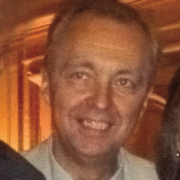Cancer : new challenges lying ahead
Cancer remains the second leading cause of death in Europe after cardiovascular diseases with approximately 3.5 million new cases diagnosed every year and an annual death toll of 1.5 million. However, the good news is that the trend of total cancer mortality levels is downwards for both men and women and also children for which the progress of 5-year leukemia survival has been spectacular.
Breast cancer provides a good example of this trend, being not just the most common female cancer globally but also the number one diagnosed cancer in Europe (13%). Its 5-year survival rate has more than doubled in 40 years, from 40% of patients in 1970 to 90% in 2013. Looking into the future there are also some encouraging signs for certain types of cancer, particularly cervical cancer as the full impact of the HPV vaccination programmes becomes measurable.
In Europe, some of the credit for these positive developments should go to the European Organization for Research and Treatment of Cancer (EORTC), founded in 1962. Over the years, EORTC’s clinical research has helped make significant progress in the treatment and management of cancer, evaluating new molecules, refining existing treatment regimens, identifying biomarkers and assessing patients’ qualify of life. In 2016, the EORTC research network counted more than 4850 physicians from about 870 institutions while patient accrual from 2000 to 2016 totalled over 89,000 patients in clinical studies.
The bad news is that the overall burden of cancer continues to increase not just because of progress in early detection but largely because of the ageing of the population (65% of new cancer cases are diagnosed in patients who are 65 or older). Also, smoking, particularly in women, is linked to a rising incidence of lung cancer.
There are still a number of challenges to be met if the promises of translational research and personalized medicine for cancer therapy are to be fulfilled. Effective coordination in Europe of advances in basic research and quality clinical research programmes is essential. New models of partnerships between academia and the pharma industry are also required as well as public funding for research on rare cancers. Prevention is paramount, though, as no cancer research will have a bigger and quicker impact than smoking cessation. Tobacco kills over one third of its users and studies have shown that smokers lose at least 10 years of life expectancy compared to non-smokers and that quitting smoking before the age of 40 reduces the risk of tobacco-related death by 90%.


